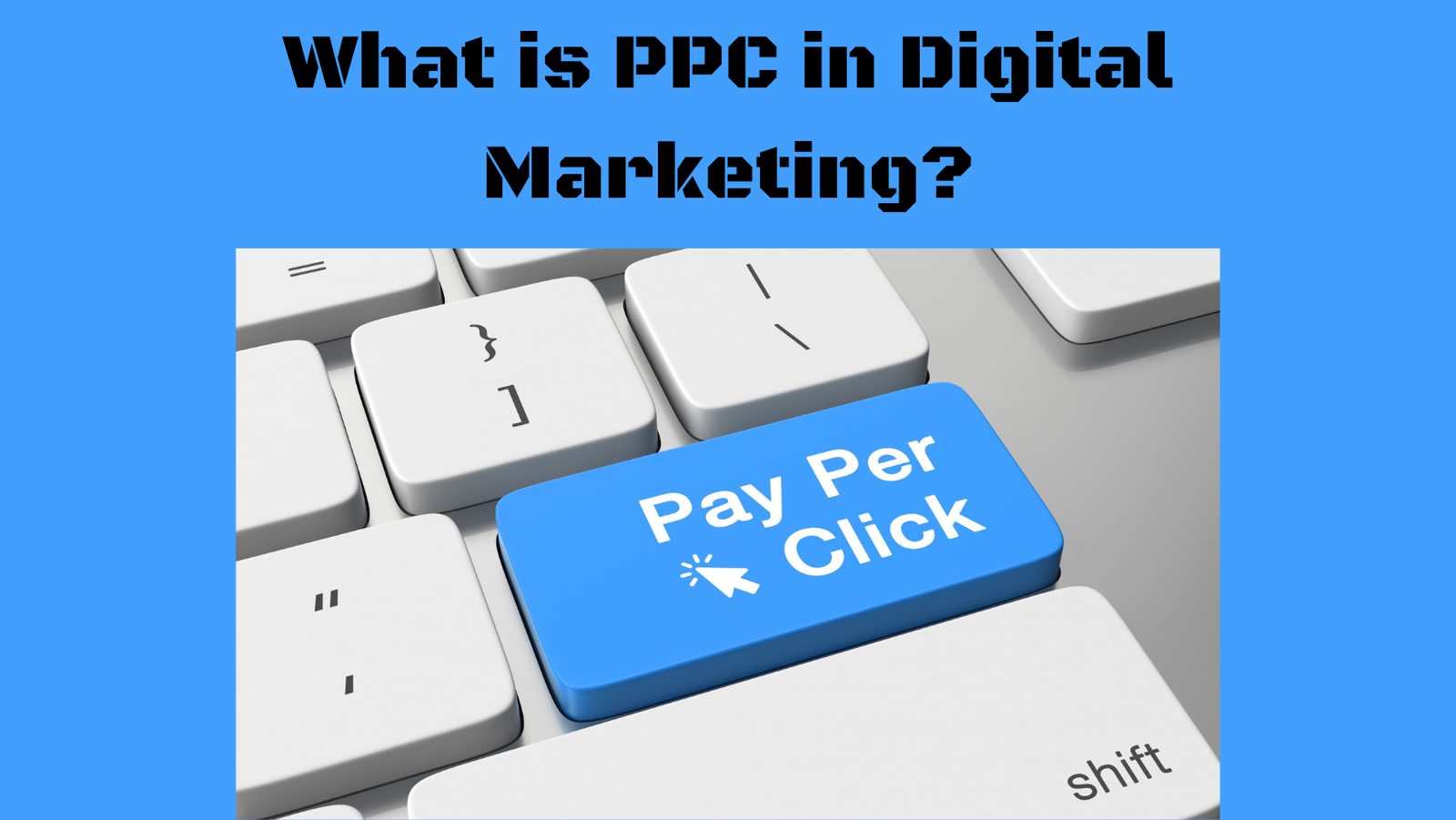Pay-Per-Click (PPC) advertising is a fundamental component of digital marketing, offering a direct route to increase visibility and drive traffic to websites.
This comprehensive guide will explore the mechanics, benefits, and strategic implementation of PPC in the digital marketing landscape.
Understanding PPC
Definition and Overview
In contrast to organic methods of gaining website traffic, PPC, or pay-per-click, is an online advertising strategy where advertisers are charged only when a user clicks on their ad.
This targeted approach allows businesses to directly reach potential customers who are actively searching for products or services related to their offerings.
Key Platforms for PPC
When it comes to PPC advertising, several key platforms dominate the market. Google Ads reigns supreme, allowing you to place targeted ads directly on Google search results pages and across other Google-owned properties.
Microsoft offers Bing Ads, reaching users on the Bing and Yahoo search networks. Social media giants like Facebook, Instagram, and LinkedIn also leverage PPC models, enabling you to connect with specific audiences within their vast user bases.
Types of PPC Ads
Online advertising can take many forms, with search ads appearing directly on search engine results pages to answer user queries. Display ads, often image-based, are strategically placed on websites within a network of partnered platforms.
Social media ads, on the other hand, leverage the massive user base of social media platforms, appearing in various formats tailored to each specific platform.
Shopping ads act like colorful product brochures on search engines, showcasing your offerings directly to users actively looking for what you sell. Remarketing then swoops in to remind those who browsed your window (website) but didn’t quite commit, enticing them to come back for another look.
How PPC Works
The Auction and Bidding Process
Every time an ad spot is available, a PPC auction is held. Advertisers submit bids for the maximum amount they are willing to pay for a click. The auction determines which ads will appear and in what order.
Choosing Keywords
The lifeblood of PPC campaigns are keywords, acting as the bridge between potential customers and your business. By strategically selecting terms relevant to your offerings, you ensure your ads appear at the precise moment users search for those keywords.
Writing Effective Ad Copy
Crafting effective ad copy is the cornerstone of any successful campaign. Start by ensuring your message is crystal clear and speaks directly to your target audience’s needs. Weave in relevant keywords throughout the ad, and don’t forget to include a strong call to action that prompts users to take the next step, whether it’s visiting your website, signing up for a free trial, or making a purchase.
Benefits of PPC Advertising
Quick Entry
Unlike SEO (Search Engine Optimization) which relies on organic growth, PPC (Pay-Per-Click) advertising offers a faster track to reach.
PPC campaigns can be launched quickly, allowing you to target specific audiences and generate qualified leads almost instantly. This makes PPC a valuable tool for businesses seeking immediate results and increased website traffic.
Measurable ROI
Unlike traditional marketing methods, PPC offers the advantage of measurable return on investment (ROI). By utilizing tools like Google Analytics, you can gain valuable insights into campaign performance.
These detailed metrics track everything from clicks and impressions to conversions and revenue, allowing you to precisely measure the effectiveness of your PPC efforts and ensure you’re getting a positive return on your ad spend.
Highly Targeted Audience
Gone are the days of scattershot advertising. Today, advertisers can craft laser-focused campaigns reaching the perfect person at the perfect time.
By utilizing demographics, location, device settings, and even past browsing behavior, advertisers can tailor their message to resonate with a highly targeted audience, maximizing impact and conversion rates.
Budget Control
Budget control is a crucial aspect of Pay-Per-Click (PPC) advertising. It allows advertisers to define a maximum amount they are willing to spend on their campaigns, either on a daily or monthly basis.
This flexibility empowers them to optimize their PPC campaigns based on the performance they see. By closely monitoring the results, advertisers can adjust their budget allocations to maximize their return on investment (ROI) and ensure they stay within their financial constraints.
Developing a PPC Strategy
Understanding Your Audience
By pinpointing your audience’s specific characteristics, like their favorite online platforms, preferred language, and the challenges they face, you can tailor your keywords and craft ad messages that resonate directly with their needs and interests. This targeted approach ensures your message reaches the right people at the right time, maximizing its impact.
Setting Clear Objectives
Crystallizing your desired outcomes is paramount to successful PPC campaigns. Whether it’s boosting brand recognition, cultivating leads, or propelling sales, clearly defined objectives serve as the compass for your PPC strategy, ensuring every action you take steers you towards achieving those goals.
Continuous Testing and Optimization
In the world of pay-per-click (PPC) advertising, achieving optimal campaign performance requires continuous testing and refinement. This involves regularly evaluating different keywords, crafting compelling ad copy, and optimizing landing pages to ensure a seamless user experience.
By constantly testing and iterating on these elements, PPC campaigns can be fine-tuned to attract the right audience, deliver impactful messaging, and ultimately drive conversions.
Integrating PPC with Other Digital Marketing Strategies
By weaving PPC campaigns together with SEO, content marketing, and social media efforts, you can craft a well-rounded digital marketing strategy that not only boosts your immediate visibility but fosters long-term organic growth through brand awareness and targeted content.
Challenges in PPC
High Competition
In the realm of digital marketing, some keywords and markets are overflowing with competition. This fierce rivalry can inflate the cost of advertising and online presence, making it more expensive to grab the attention of potential customers.
Click Fraud
Advertisers beware! Click fraud, where deceptive clicks by automated bots or even malicious competitors can occur, drain your advertising budget by driving up costs without generating genuine leads or sales. This sneaky tactic pollutes your data and hinders your ability to measure true campaign performance.
Skill and Time Requirement
Mastering PPC (pay-per-click) advertising demands not only specialized knowledge but also consistent fine-tuning. This ongoing optimization process can be quite resource-intensive, requiring dedication of both time and expertise.
Check Similiar Guide: is Digital Marketing a Good Career?
Conclusion:
PPC is a powerful tool in digital marketing, providing fast results and precise targeting options. However, it requires careful planning, ongoing management, and integration with other marketing efforts to achieve the best results.
Businesses looking to enhance their digital strategy should consider both the benefits and challenges of PPC to ensure a well-rounded approach to online marketing. By leveraging the immediacy and flexibility of PPC, marketers can effectively complement their organic efforts and achieve substantial gains in their digital presence.
Frequently asked Questions
What exactly is PPC in digital marketing?
PPC stands for pay-per-click. It’s an advertising model where you only pay when someone clicks on your ad. This means you’re directing targeted traffic to your website or landing page, rather than paying for impressions (ad views) alone.
How does PPC advertising work?
PPC typically involves bidding on keywords relevant to your product or service. When someone searches for those keywords, your ad might appear in search engine results pages (SERPs) or on other platforms like social media. The platform then charges you a fee whenever someone clicks on your ad.
What are the benefits of using PPC?
There are several advantages to PPC marketing. It offers fast results, allowing you to reach a targeted audience actively searching for what you offer. PPC is also highly measurable, so you can track your return on investment (ROI) and optimize your campaigns for better performance.
What are some common PPC campaign goals?
Businesses use PPC for various goals, including increasing website traffic, generating leads, boosting brand awareness, and driving online sales.
Where can PPC ads be displayed?
While search engine advertising (SEA) is a dominant PPC platform, your ads can also appear on social media channels like Facebook and Instagram, on display networks across various websites, and even in mobile apps.
Is PPC expensive?
The cost of PPC advertising can vary depending on your industry, target audience, chosen platform, and the competitiveness of your keywords. However, you can set budgets and control your spending with PPC campaigns.
What are some key PPC metrics to track?
Important PPC metrics include impressions (ad views), clicks, click-through rate (CTR), cost per click (CPC), conversions, and conversion rate. Tracking these metrics helps you understand your campaign’s effectiveness and identify areas for improvement.
Do I need any special skills to run PPC campaigns?
While anyone can get started with PPC, mastering it requires knowledge and experience. Several online resources and courses can teach you PPC fundamentals, but for complex campaigns, consider consulting a professional PPC agency.
How can I get started with PPC advertising?
Many popular platforms like Google Ads and social media advertising platforms offer options to create and launch PPC campaigns. These platforms usually provide tutorials and guides to help you get started.
What are some common PPC mistakes to avoid?
Bidding on irrelevant keywords, neglecting ad copywriting, and having poor landing pages are some common pitfalls in PPC. Regularly monitor your campaigns, optimize your strategy, and stay updated on PPC best practices to achieve optimal results.


